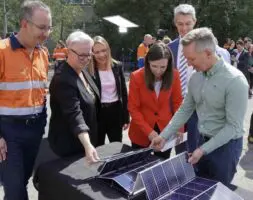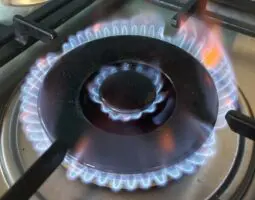Europe’s solar industry has called for the immediate ban on the import of unethically produced solar panels, amid warnings that ultra-cheap Chinese modules are flooding the EU market and driving local manufacturers out of business.
In a letter co-signed by more than 30 European solar manufacturers, start-ups and associated companies, SolarPower Europe calls on the EU and its member states to take immediate action on a range of policy fronts to avert what it describes as “a looming catastrophe.”
The catastrophe, the letter says, is being caused by unsustainably low-priced PV modules from China that are being amassed in stockpiles in European ports at levels equivalent to the continent’s entire annual installation demand.
“Despite efforts like the Temporary Crisis and Transition Framework (TCTF) and the Net-Zero Industry Act (NZIA), intentional actions by Chinese PV manufacturers threaten the European solar PV industry’s renaissance,” the letter says.
“Imports are projected to reach 120GW in 2023, overshadowing expected installations of just over 60GW.”
European PV module production, meanwhile, has plummeted from 9GW in 2022 to around 1GW in 2023, the letter says, leaving a number of local manufacturers facing insolvency.
“The manufacturers now face a choice: continue production shutdowns and face bankruptcy or seek refuge in regions like the US that support their PV industry,” SolarPower Europe says.
The call to action in Europe follows last year’s warning from the International Energy Agency that China’s across-the-board domination of the global solar supply chain is threatening to undermine the transition to net zero.
The IEA Special Report on Solar PV Global Supply Chains put China’s share in all the key manufacturing stages of solar panels at greater than 80%, and said that for key components like polysilicon and wafers, the share is on track to surpass 95%.
“China has been instrumental in bringing down costs worldwide for solar PV, with multiple benefits for clean energy transitions,” said IEA Executive Director Fatih Birol.
“At the same time, the level of geographical concentration in global supply chains also poses potential challenges that governments need to address.”
But the situation in Europe illustrates how fraught the road to supply chain diversification can be – and offers lessons for countries like Australia, where the federal government is taking small and early steps towards building up a solar manufacturing industry of its own.
“The European PV manufacturing industry urgently requires assurance regarding the uptake of domestic production, commencing no later than 2026,” the letter says.
To achieve this, SolarPower Europe proposes local content targets and incentives for European installers and project developers to incorporate a minimum share of EU product along the entire PV value chain.
For renewable energy auctions, the trade group says non-financial criteria should be applied, to reward the environmental and social benefits of European-made PV modules.
The letter also calls on the “emergency acquisition” of European PV manufacturers’ PV module inventories “in response to the forced price decline caused by Chinese unjust trade practices.”
And finally, the industry calls for the “immediate exclusion” from the European market of solar modules produced using forced labor.
“We cannot compete with and will not turn a blind eye to modern slavery,” it says.
“Large volumes of unethical produced PV modules — originally bound for the US market but prevented to enter by the existing Uyghur Forced Labor Prevention Act (UFLPA) — are now being dumped in Europe which lack processes to stop modules manufactured with forced labor.”










